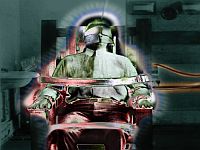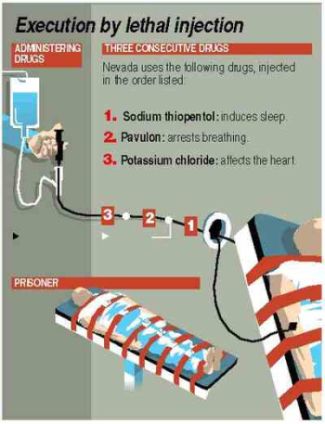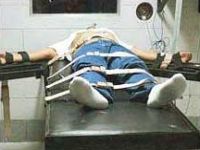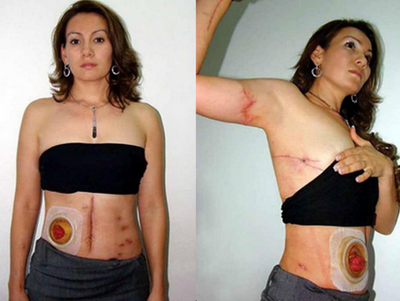
While we have come ahead from the days of the Guillotine, ‘painless death’ for prisoners is still a far cry. The process of condemning someone to death is in itself an unpleasant one and if the death is to be painful it becomes more difficult.
New York’s death penalty has been struck down and moratoriums against the death penalty are in place in Illinois and New Jersey. In addition, executions are temporarily suspended in California, Delaware, Florida, Louisiana and Missouri. Lethal injection is the primary or exclusive form of execution in 37 of the 38 states that have capital punishment laws and its use is under question.
Angel Diaz’s painfully blotched execution took 34 minutes, where it should have taken half the time. The entire criminal justice system is at stake here where people examine whether death by lethal injection disregards prohibition against cruel and unusual punishments, causing pain to death-row inmates.
This so called humane methodology of the death cocktail consists of Sodium Thiopental (for sedation), Pancuronium Bromide (muscle relaxant-collapses diaphragm and lungs and paralyzes the skeletal muscles without affecting the nerves or brain) and Potassium Chloride (stops heart beat also gives excruciating pain).

Why not the lethal injection?
‘ Once the human being has been administered Pancuronium Bromide, he remains conscious without being able to move or speak, thus giving the impression of serenity or tranquility even though he might be feeling excruciating pain.
‘ As a result, the death process might take much longer and is very painful.
‘ Difficulty in inserting intravenous needles as in the case with Diaz, where the injection was inserted into the tissue instead of the vein, delays the process.
Dr. J. Kent Garman said:
Missing a vein when administering the injections would cause both psychological and physical discomfort, probably pretty severe. All the drugs would be much slower to affect the body because they’re not going into a blood vessel. They’re going under the skin. They take a long time to be absorbed by the body
Is it not a surprise then that doctors in California refused to administer the dose.
What was done?
‘ Oklahoma altered its procedure so that the prisoner receives more anesthesia before being executed.
‘ In North Carolina, a federal judge ordered that a brain monitor be used to make sure an inmate is unconscious before the final drug is administered.
‘ Yet others have delayed executions while lethal injection is under review.
It has sparked the debate once more about capital punishment as well as its process.
Why not capital punishment?
‘ There are those who are against capital punishments for moral reasons.
‘ Irrevocableness of capital punishment could kill innocents if the justice system is flawed.
‘ If biases on racial grounds are let into the justice system, capital punishment becomes a tool to abuse power and punish the innocent.
‘ Death is an easy release, hard core criminals should be made to do lifelong hard labor.
Why capital punishment?
‘ It is sure to serve as a deterrent for the perpetrators of heinous crimes like murder, rape.
‘ The escalating costs of keeping the prisoners.
Gerald Uelmen, a professor at the Santa Clara University School of Law said:
The leading cause of death on death row right now is old age, We’ve just overburdened the system.
‘ An escaped prisoner is a criminal let loose to kill again.
 Maybe the answer lies in filling the loopholes in the judicial system so that innocents are not condemned.
Maybe the answer lies in filling the loopholes in the judicial system so that innocents are not condemned.
In case it has to be capital punishment, what would you choose – Firing squad, the Electric chair, Hanging, the Gas chamber or death by lethal injection?
However, the question still remains that whether capital punishment should be there or not? We’ll know that any kind of legal punishment is imparted to set an example for others. Nevertheless, by imposing and following the beaten path from centuries have we been able to eradicate crime? The answer is a big ‘NO’. So, it’s sure that the problem lies somewhere else. If you’re nurturing the notion that after hanging thousands of rapists you’ll be able instill fear and force people not to repeat it, than you’re living in a different world altogether.
The problem in the world we live in is the fact that WE are too many and apparently, adamantly holding the reigns of the crime world too, driving it the way we like and ultimately crowing ‘circumstances‘ as the main culprit and these are mere trifles ‘ toothless and ineffective. The ‘fear factor‘, though gels with the punishments, however, can never be effective, we can simply cool our heals by saying that the justice has been imparted, but, that is not the case, the root cause flourishes there, becomes more venomous with the passage of time and raises its hood again like never before. As I said, the ‘root’ should be attacked, I’m not saying that any criminal should be allowed to go scott-free, but a constructive approach killing the ’cause’ too should also run parallel with it. What do you say?




